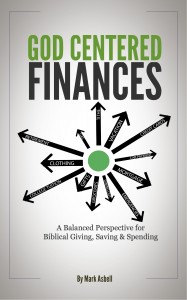It’s interesting to look back on past blog posts because in many ways it’s almost like reading a journal. Here’s one from way back when Shawna and I had just met our friends Joe & Jenn and we were just starting out on a new path in our financial journey. Ironically the title of that post is “Financial Freedom“, as though I was claiming it before it was reality. I wouldn’t necessarily say we’re financially “free”, because now I don’t really agree with what that term suggests – no one can ever be free from finances. But we can be free from financial bondage, so by that standard I have a lot to be thankful for.


